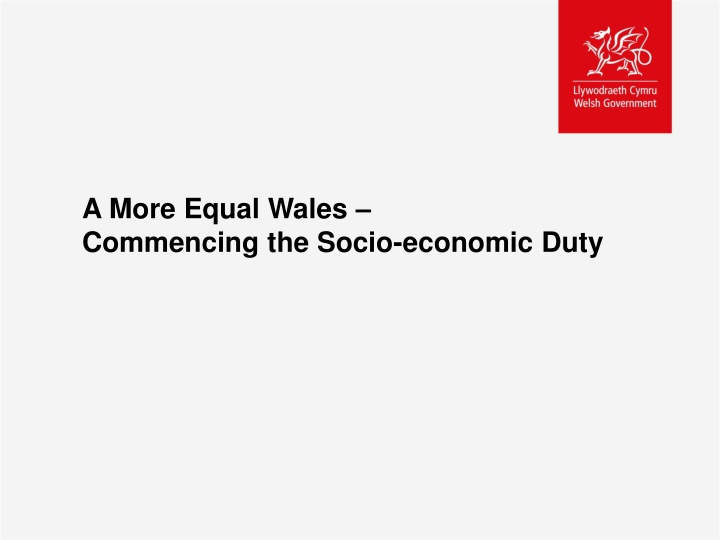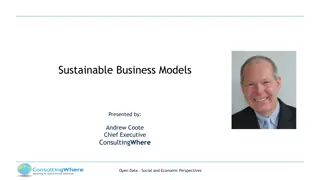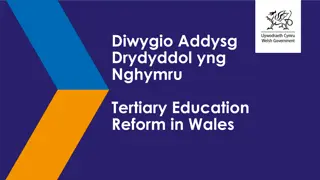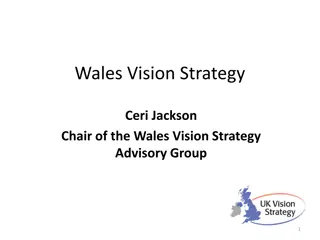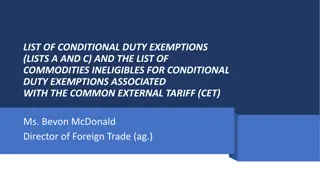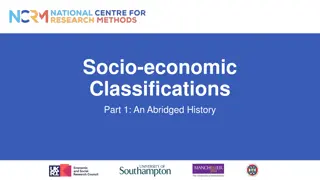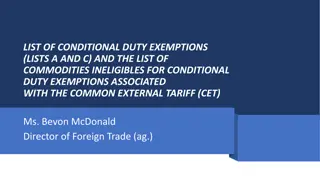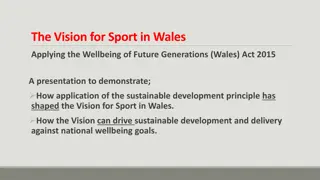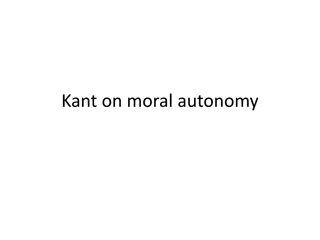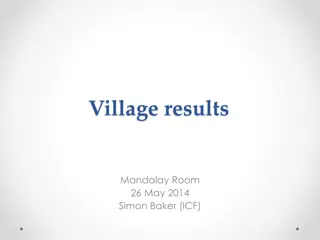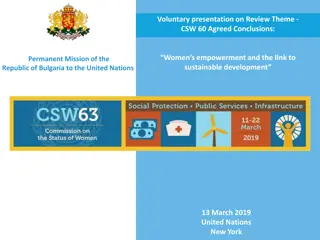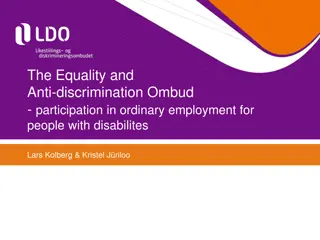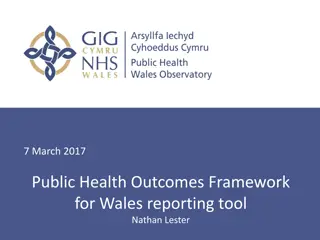Promoting Equality in Wales: Implementing the Socio-economic Duty
The Welsh Government is prioritizing equality and human rights, especially in the context of Brexit, by commencing the socio-economic duty outlined in the Wales Act 2017. This duty requires specified public bodies to consider how their decisions can reduce inequalities associated with socio-economic disadvantage. A consultation from 22nd November 2019 to 17th January 2020 seeks input on which public bodies should be included under this duty and how it should be implemented to benefit the people of Wales.
Download Presentation

Please find below an Image/Link to download the presentation.
The content on the website is provided AS IS for your information and personal use only. It may not be sold, licensed, or shared on other websites without obtaining consent from the author.If you encounter any issues during the download, it is possible that the publisher has removed the file from their server.
You are allowed to download the files provided on this website for personal or commercial use, subject to the condition that they are used lawfully. All files are the property of their respective owners.
The content on the website is provided AS IS for your information and personal use only. It may not be sold, licensed, or shared on other websites without obtaining consent from the author.
E N D
Presentation Transcript
A More Equal Wales Commencing the Socio-economic Duty
The declaration and intent A priority for the Welsh Government is to take action to safeguard equality and human rights, particularly in the context of Brexit. One piece of this work is through commencing the socio- economic duty a commitment from the First Minister s election manifesto.
The legal bits Section 45 of the Wales Act 2017 devolves the power to Welsh Ministers to commence the socio-economic duty to the Welsh Government. This involves enacting Part 1, Section 1 of the Equality Act 2010 the socio-economic duty.
So, what does the socio-economic duty mean? It requires specified public bodies, when making strategic decisions such as deciding priorities and setting objectives , to consider how their decisions might help to reduce the inequalities associated with socio-economic disadvantage.
Who will be captured by the duty The duty will apply to the following eligible public bodies, as they are deemed to have satisfied the ( test under section 2(6) of the Equality Act 2010: Welsh Ministers; Local Health Boards; NHS Trusts; Welsh Special Health Authorities (HEIW); Local Authorities; Fire and Rescue Services; Welsh Revenue Authority; and National Park Authorities.
Consultation 22 November 2019 to 17 January 2020 Welsh Government will be launching an 8 week consultation - A More Equal Wales Commencing the Socio-economic Duty between 22 November 2019 and 17 January 2020. The consultation will seek the views from members of the public and key stakeholders on which public bodies should be captured by the duty and how the duty is implemented. The responses to the consultation will inform guidance to ensure the socio-economic duty works for public bodies to whom it applies and delivers for the people of Wales. We need your views!
Defining the Key Terms Through the consultation we will be seeking your views on a number of issues, including the various definitions. These include: Decisions of a strategic nature; Inequalities of outcome; Socio-economic disadvantage.
i) Decisions of a strategic nature The Welsh Government wishes to use a definition which truly captures the important decisions relevant public bodies make. It is therefore proposed in Wales a strategic decision, in the context of the proposed duty, is defined as: Decisions which set the organisations overall priorities, strategies and key policies, targets, broad approaches, and expenditure concerning the delivery of its business.
ii) Inequalities of outcome The Welsh Government wishes to help public bodies in determining which socio-economic inequalities are important to Wales by linking this to existing measures of inequality such as (not an exhaustive list): National Well-being Indicators laid by Welsh Ministers under the Well-being of Future Generations (Wales) Act 2015 - those mapped against the a more equal Wales well-being goal; Well-being of Wales report; Is Wales Fairer.
iii) Socio-economic disadvantage Features of socio-economic disadvantage are complex and are often interlinked. It is proposed that in Wales we use a similar definition which is contained within Scotland s interim guidance for the Fairer Scotland Duty: living on a low income compared to others in Wales, with little or no accumulated wealth, leading to greater material deprivation, restricting the ability to access basic goods and services. Socio- economic disadvantage can be experienced in both places and communities of interest, leading to further negative outcomes such as social exclusion.
Learning lessons - Fairer Scotland Duty We will look at how the duty has been implemented in Scotland but our overall aim is to ensure that the approach we adopt takes full account of the existing Welsh legislative context, particularly the Well-being of Futures Generations Act.
Next steps The Welsh Government will be launching a public consultation on proposals from 22 November - 17 January 2020. Stakeholder events will run alongside the consultation on an all Wales basis to help raise awareness and to inform the development of the supporting guidance. The duty will come into force on the 1 April 2020. In order to support relevant public bodies, guidance will be co- produced between Welsh Government, relevant public body representatives, and other key stakeholders through a series of events.
Summary The commencement of the socio-economic duty is about requiring relevant public bodies to: consider socio-economic disadvantage when making key strategic decisions; demonstrate they have considered available evidence on socio- economic disadvantage to inform how they can better target their policies and resources to help those who are most disadvantaged; balance the desirability of that aim against other objectives; working within existing resource allocations and budgets, and within existing planning, decision-making, and reporting processes. The duty is not about: creating a new equalities strand or protected characteristic; creating new justiciable rights for individuals; addressing discrimination against individuals on account of socioeconomic factors; superseding all other strategic priorities; creating burdensome new monitoring or reporting processes; directly affecting or determining operational decisions or everyday decisions; or requiring relevant public bodies to use their resources to remove unequal outcomes in every case where they are identified.
